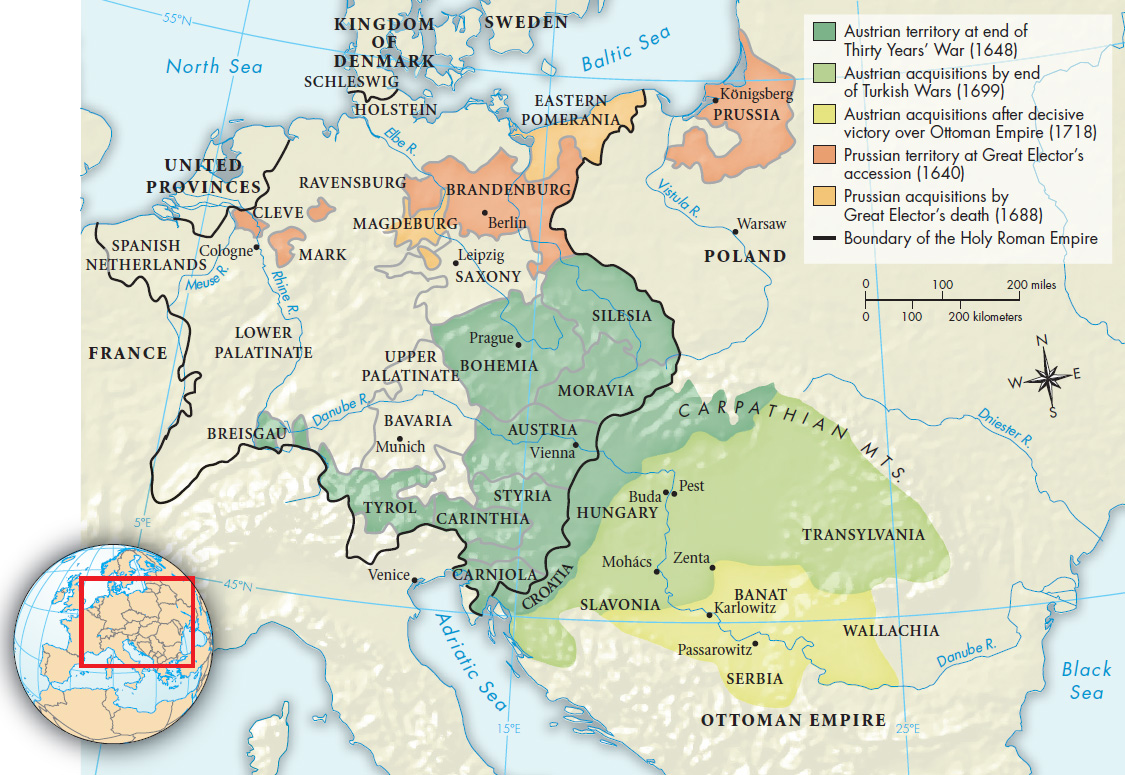A History of Western Society: Printed Page 480
A History of Western Society, Value Edition: Printed Page 494
Prussia in the Seventeenth Century
In the fifteenth and sixteenth centuries, the Hohenzollern family had ruled parts of eastern Germany as the imperial electors of Brandenburg and the dukes of Prussia. The title of “elector” gave its holder the privilege of being one of only seven princes or archbishops entitled to elect the Holy Roman emperor, but the electors had little real power. When he came to power in 1640, the twenty-year-old Frederick William, later known as the “Great Elector,” was determined to unify his three provinces and enlarge his holdings. These provinces were Brandenburg; Prussia, inherited in 1618; and scattered territories along the Rhine inherited in 1614 (Map 15.3). Each was inhabited by German-speakers, but each had its own estates. Although the estates had not met regularly during the chaotic Thirty Years’ War, taxes could not be levied without their consent. The estates of Brandenburg and Prussia were dominated by the nobility and the landowning classes, known as the Junkers.

Frederick William profited from ongoing European war and the threat of invasion from Russia when he argued for the need for a permanent standing army. In 1660 he persuaded Junkers in the estates to accept taxation without consent in order to fund an army. They agreed to do so in exchange for reconfirmation of their own privileges, including authority over the serfs. Having won over the Junkers, the king crushed potential opposition to his power from the towns. One by one, Prussian cities were eliminated from the estates and subjected to new taxes on goods and services.
Thereafter, the estates’ power declined rapidly, for the Great Elector had both financial independence and superior force. He revealed his strategy toward managing the estates in the written instructions he left his son:
Always regulate the expenditures according to the revenues, and have officials diligently render receipts every year. When the finances are in a good state again, then you will have enough means, and you will not have to request money from the estates or address them. Then it is also not necessary to hold the many and expensive parliaments, because the more parliaments you hold, the more authority is taken from you, because the estates always try something that is detrimental to the majesty of the ruler.7
By following his own sage advice, Frederick William tripled state revenue during his reign and expanded the army drastically. In 1688 a population of 1 million supported a peacetime standing army of 30,000. In 1701 the elector’s son, Frederick I, received the elevated title of king of Prussia (instead of elector) as a reward for aiding the Holy Roman emperor in the War of the Spanish Succession.